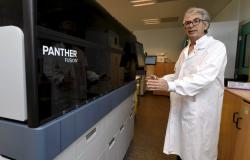Elon Musk, the famous visionary entrepreneur, has long fascinated the world with his groundbreaking innovations in electric automobiles, solar energy and space exploration. Among its most daring ambitions is the colonization project of March, carried by his company SpaceX. The initiative aims to establish a sustainable human presence on the Red Planet, a goal that Musk said could be achieved within the next 10 to 20 years. Musk’s dream of sending men to Mars is illustrated by a five-minute animation unveiled by SpaceX, showing a manned journey aboard the rocket Starship.
However, a recent study conducted by University College London (UCL) could jeopardize these ambitious plans. Research has found that space conditions, including microgravity and galactic radiation, negatively impact the structure of astronauts’ kidneys, with signs of shrinkage observed after less than a month in space. These findings raise major concerns about the viability of long-duration human missions to Mars.
Researchers studied samples from more than 40 space missions involving humans and mice, finding that the kidneys undergo significant transformation under the influence of space conditions. THE Dr. Keith Siew, first author of the study and researcher at the London Tubular Centre, based in UCL’s Department of Renal Medicine, highlighted that kidney problems such as kidney stones are already a common health issue during short space missions. The extension of these missions, like that envisaged for Mars, exacerbates these risks.
Faced with these challenges, scientists did not rule out the possibility of future missions to Mars, but they insisted on the need to develop kidney protection measures to avoid serious harm to astronauts. Among the solutions being considered are the introduction of recovery methods on board spacecraft, such as dialysis machines, and the search for new technological or pharmaceutical approaches to alleviate the effects of radiation.
The teacher Stephen Walsh, lead author of the study, also highlighted the importance of kidneys in planning space missions. He said it is crucial to continue exploring kidney biology to develop measures that can support extended space travel, especially since kidneys show signs of radiation damage late in life, often when it is already too late to prevent failure. renal.
The impact of these discoveries is potentially immense. If solutions are not found and implemented, the Mars colonization project could see its chances of success significantly reduced, posing a serious dilemma for SpaceX and its founder. Musk’s efforts to revolutionize space travel could face a major obstacle, questioning the long-term feasibility of his most expensive project.





